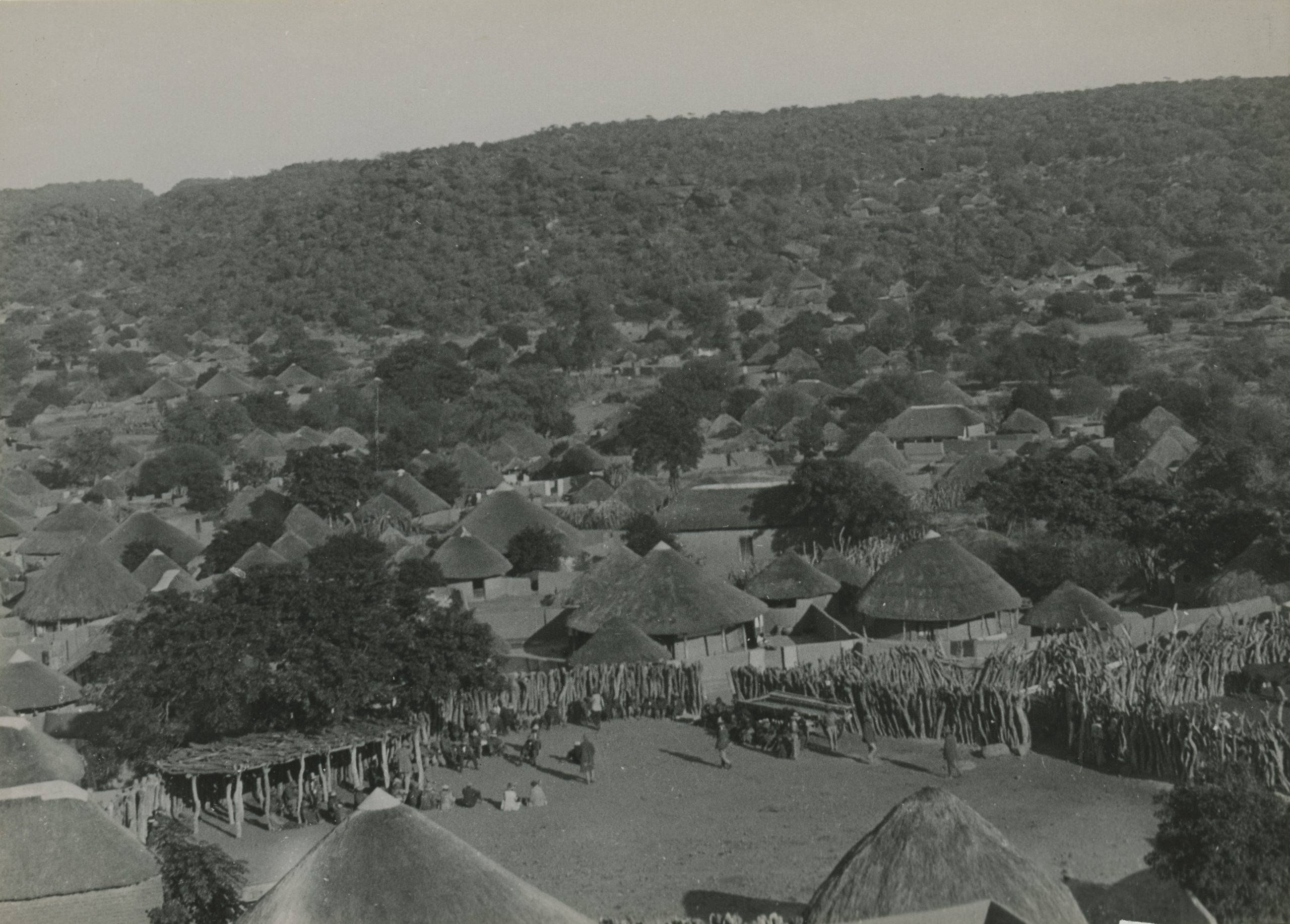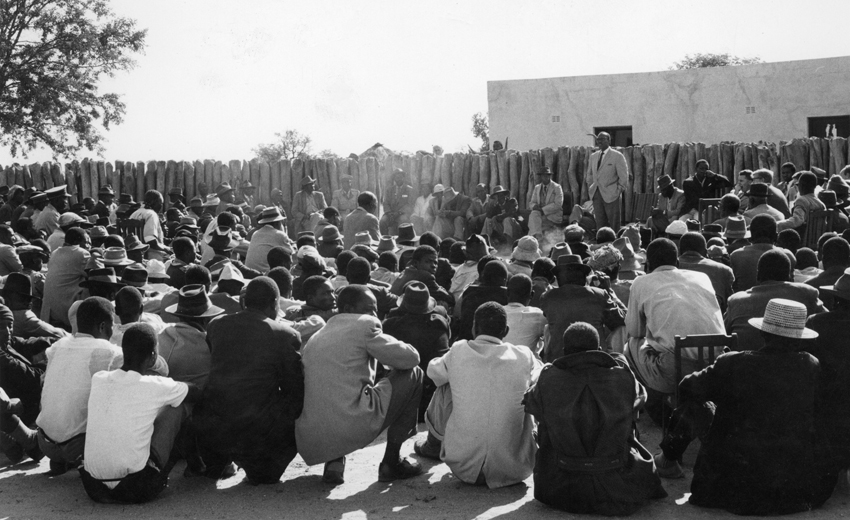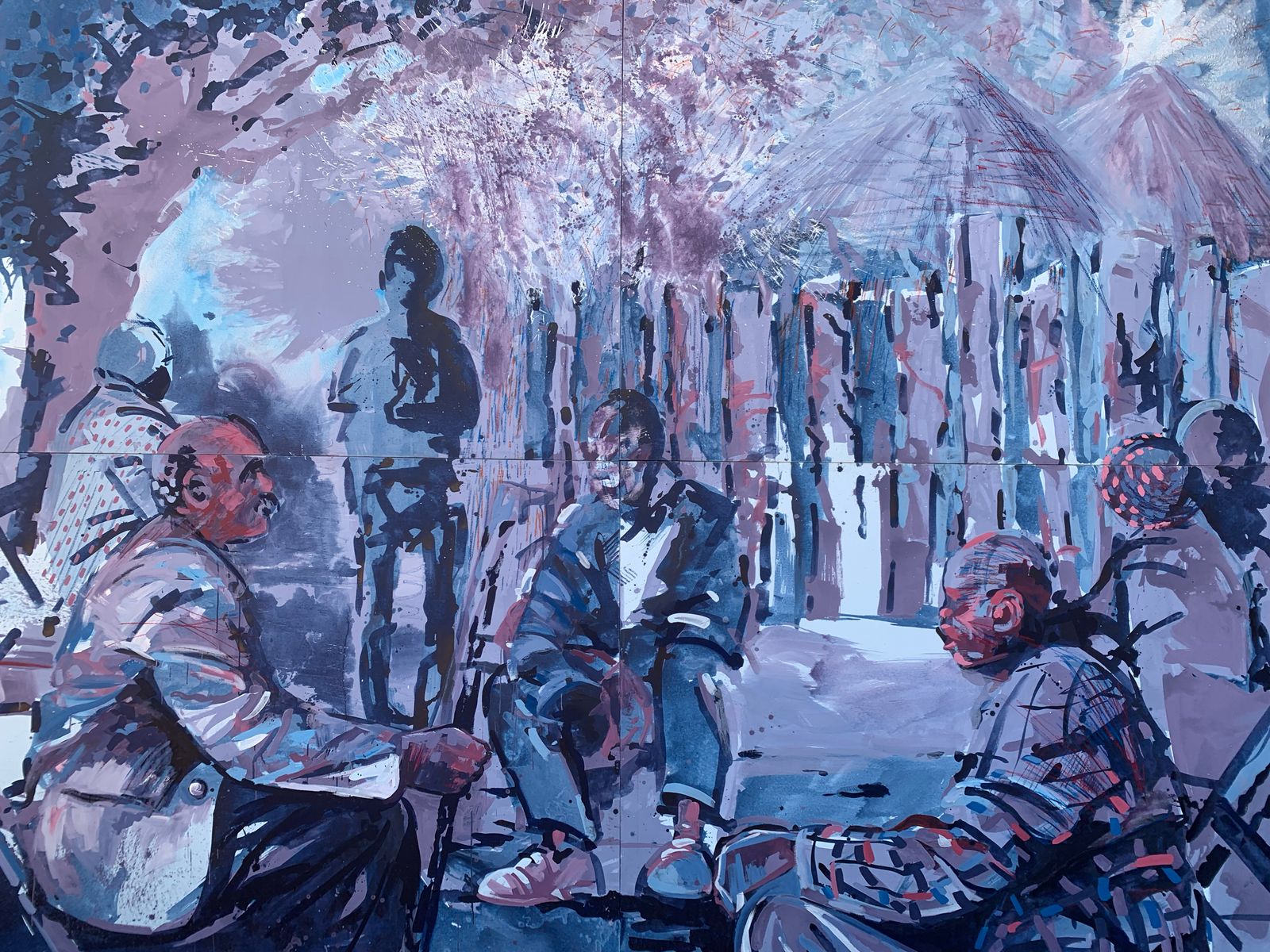research
-
 A Culture of ConsensusJulio S. Solís Arce
A Culture of ConsensusJulio S. Solís ArceDissertation Project: Decision-making by consensus has been the preferred collective choice rule by innumerable human groups throughout history, yet majority rule dominates contemporary political institutions. When societies that traditionally made decisions by consensus are forced to make decisions by majority rule we might expect an incongruence between culture—the default preference for a collective choice rule—and institutions—the actual rule used to make group decisions. I plan to test this incongruence hypothesis among the Tswana of Botswana, known for their consensus traditional institutions. Using a lab-in-the-field experiment, I hypothesize that cultural and institutional congruence leads to more efficient decisions and greater citizen satisfaction with decision-making processes. Leveraging variation in the ’consensus tradition’ across Tswana polities in Botswana and South Africa I expect that consensus institutions are demanded in localities with less exposure to colonialism and a history of ethnic diversity. I will also explore the mechanisms through which consensus persists, including aversion to inequality, conformity and aversion to institutional innovation.
-
 Consensus: Theory and Evidence from an African Collective Choice RuleJulio S. Solís Arce
Consensus: Theory and Evidence from an African Collective Choice RuleJulio S. Solís ArceA long tradition in anthropology, political theory, and African political thought emphasizes consensus as a distinctive mode of collective decision-making across many African societies. Consensus involves open deliberation, the presentation and weighing of alternatives, and a final recommendation made by a respected authority figure. This rule blends participatory and deliberative features with hierarchical elements grounded in cultural values such as collectivism and deference to elders or chiefs. Using cross-country evidence from Afrobarometer and precolonial institutional data, I show that contemporary preferences for consensus are shaped by historical practices of leader selection and are positively correlated with collectivistic orientations. Yet these same preferences are also associated with greater acceptance of nondemocratic political arrangements, including one-party rule and governance by chiefs or strongmen. These findings underscore the dual character of consensus: it can support inclusive deliberation, but its hierarchical structure may also undermine efforts to consolidate Western-style democratic institutions in Africa.
-
 Creating Consensus for Constitutional Change: A Field Experiment in GhanaJosé Ramón Enríquez and Julio S. Solís Arce
Creating Consensus for Constitutional Change: A Field Experiment in GhanaJosé Ramón Enríquez and Julio S. Solís ArceWork in Progress: In major political transformations like constitutional replacements, broad consensus among society members is essential. However, the methods to build such consensus, particularly in young, diverse and polarized democracies like Ghana, remain unclear. This project proposes a framework to encourage political participation in supporting a constitutional reform by emphasizing consensus-generating issues. We will conduct randomized experiments deploying deliberation.io, an open-source AI-powered deliberation platform, to facilitate constitutional reform discussions in Ghana. Across 150,000 participants, we will estimate causal effects of AI modules on preference formation, cross-group convergence, and opinion quality under high polarization. Results will identify mechanisms enabling collective decision-making and inform cost-effective technologies for participatory development in emerging economies.
-
 Political Development: Normative Principles for Comparing SocietiesJulio S. Solís Arce
Political Development: Normative Principles for Comparing SocietiesJulio S. Solís ArceWork in Progress: The aim of this paper is to challenge conventional notions of political development that prioritize the state and Western-style democracy as universal benchmarks. First, I present political development as defined by modernization theory (comparative politics) and neo-evolutionary theory (anthropology). Next, I argue that these approaches inadequately capture the diversity of political systems across societies. I propose to redefine political development based on normative principles of political equality and legitimacy: a more politically developed society is one that promotes political equality and can transition between equality and inequality with the consent of its population. I illustrate the points using old and new archeological and anthropological evidence of alternative forms of political life in small and non-state societies.
- SSRNGathering, Evaluating, and Aggregating Social Scientific ModelsMiriam A. Golden, Tara Slough, Haoyu Zhai, and 29 more authorsSSRN Working Paper, 2023
On what basis can we claim a scholarly community understands a phenomenon? Social scientists generally propagate many rival explanations for what they study. How best to discriminate between or aggregate them introduces myriad questions because we lack standard tools that synthesize discrete explanations. In this paper, we assemble and test a set of approaches to the selection and aggregation of predictive statistical models representing different social scientific explanations for a single outcome: original crowd-sourced predictive models of COVID-19 mortality. We evaluate social scientists’ ability to select or discriminate between these models using an expert forecast elicitation exercise. We provide a framework for aggregating discrete explanations, including using an ensemble algorithm (model stacking). Although the best models outperform benchmark machine learning models, experts are generally unable to identify models’ predictive accuracy. Findings support the use of algorithmic approaches for the aggregation of social scientific explanations over human judgement or ad-hoc processes.
@article{golden2023gathering, title = {Gathering, Evaluating, and Aggregating Social Scientific Models}, author = {Golden, Miriam A. and Slough, Tara and Zhai, Haoyu and Scacco, Alexandra and Humphreys, Macartan and Vivalt, Eva and Diaz-Cayeros, Alberto and Dionne, Kim Yi and KC, Sampada and Nazrullaeva, Eugenia and Aronow, P. M. and Brethouwe, Jan-Tino and Buijsrogge, Anne and Burnett, John and DeMora, Stephanie and Enríquez, José Ramón and Fokkink, Robbert and Fu, Chengyu and Haas, Nicholas and Hayes, Sarah Virginia and Hilbig, Hanno and Hobbs, William R. and Honig, Dan and Kavanagh, Matthew and Lindelauf, Roy H. A. and McMurry, Nina and Merolla, Jennifer L. and Robinson, Amanda and Solís Arce, Julio S. and ten Thij, Marijn and Türkmen, Fulya Felicity and Utych, Stephen}, journal = {SSRN Working Paper}, year = {2023}, doi = {http://dx.doi.org/10.2139/ssrn.4570855}, url = {https://ssrn.com/abstract=4570855}, keywords = {meta-science, model aggregation, model selection, COVID-19, public health}, status = {published} } - NatMedCOVID-19 Vaccine Acceptance and Hesitancy in Low- and Middle-Income CountriesJulio S. Solı́s Arce, Shana S. Warren, Niccolò F. Meriggi, and 71 more authorsNature Medicine, 2021
Widespread acceptance of COVID-19 vaccines is crucial for achieving sufficient immunization coverage to end the global pandemic, yet few studies have investigated COVID-19 vaccination attitudes in lower-income countries, where large-scale vaccination is just beginning. We analyze COVID-19 vaccine acceptance across 15 survey samples covering 10 low- and middle-income countries (LMICs) in Asia, Africa and South America, Russia (an upper-middle-income country) and the United States, including a total of 44,260 individuals. We find considerably higher willingness to take a COVID-19 vaccine in our LMIC samples (mean 80.3%; median 78%; range 30.1 percentage points) compared with the United States (mean 64.6%) and Russia (mean 30.4%). Vaccine acceptance in LMICs is primarily explained by an interest in personal protection against COVID-19, while concern about side effects is the most common reason for hesitancy. Health workers are the most trusted sources of guidance about COVID-19 vaccines. Evidence from this sample of LMICs suggests that prioritizing vaccine distribution to the Global South should yield high returns in advancing global immunization coverage. Vaccination campaigns should focus on translating the high levels of stated acceptance into actual uptake. Messages highlighting vaccine efficacy and safety, delivered by healthcare workers, could be effective for addressing any remaining hesitancy in the analyzed LMICs.
@article{solis2021covid, title = {COVID-19 Vaccine Acceptance and Hesitancy in Low- and Middle-Income Countries}, author = {Sol{\'\i}s Arce, Julio S. and Warren, Shana S. and Meriggi, Niccolò F. and Scacco, Alexandra and McMurry, Nina and Voors, Maarten and Syunyaev, Georgiy and Malik, Amyn Abdul and Aboutajdine, Samya and Adeojo, Opeyemi and Anigo, Deborah and Armand, Alex and Asad, Saher and Atyera, Martin and Augsburg, Britta and Awasthi, Manisha and Ayesiga, Gloria Eden and Bancalari, Antonella and Nyqvist, Martina Björkman and Borisova, Ekaterina and Bosancianu, Constantin Manuel and García, Magarita Rosa Cabra and Cheema, Ali and Collins, Elliott and Cuccaro, Filippo and Farooqi, Ahsan Zia and Fatima, Tatheer and Fracchia, Mattia and Soria, Mery Len Galindo and Guariso, Andrea and Hasanain, Ali and Jaramillo, Sofía and Kallon, Sellu and Kamwesigye, Anthony and Kharel, Arjun and Kreps, Sarah and Levine, Madison and Littman, Rebecca and Malik, Mohammad and Manirabaruta, Gisele and Mfura, Jean Léodomir Habarimana and Momoh, Fatoma and Mucauque, Alberto and Mussa, Imamo and Nsabimana, Jean Aime and Obara, Isaac and Otálora, María Juliana and Ouédraogo, Béchir Wendemi and Pare, Touba Bakary and Platas, Melina R. and Polanco, Laura and Qureshi, Javaeria Ashraf and Raheem, Mariam and Ramakrishna, Vasudha and Rendrá, Ismail and Shah, Taimur and Shaked, Sarene Eyla and Shapiro, Jacob N. and Svensson, Jakob and Tariq, Ahsan and Tchibozo, Achille Mignondo and Tiwana, Hamid Ali and Trivedi, Bhartendu and Vernot, Corey and Vicente, Pedro C. and Weissinger, Laurin B. and Zafar, Basit and Zhang, Baobao and Karlan, Dean and Callen, Michael and Teachout, Matthieu and Humphreys, Macartan and Mobarak, Ahmed Mushfiq and Omer, Saad B.}, journal = {Nature Medicine}, volume = {27}, number = {8}, pages = {1385--1394}, year = {2021}, publisher = {Nature Publishing Group}, doi = {https://doi.org/10.1038/s41591-021-01454-y}, url = {https://www.nature.com/articles/s41591-021-01454-y}, replication = {https://github.com/wzb-ipi/covid_vaccines_nmed}, media = {https://nature.altmetric.com/details/109629548}, keywords = {health, development}, status = {published} }
